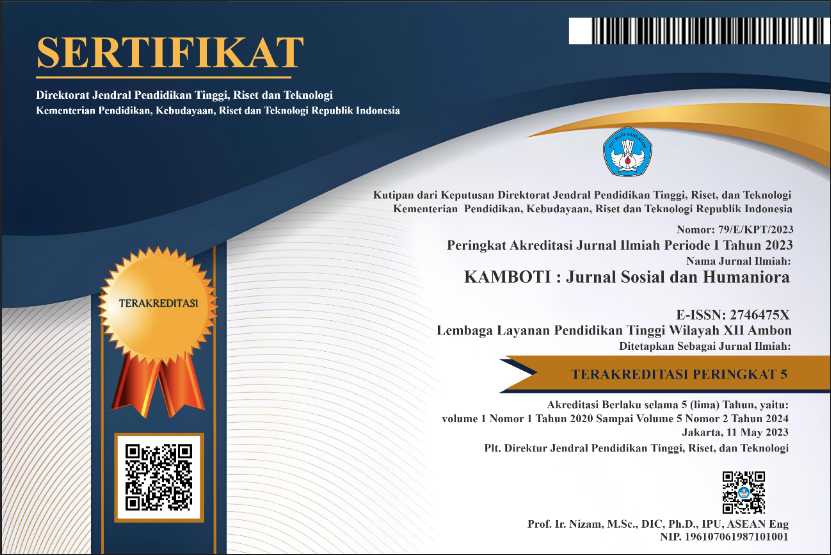The Implication of Village Funds Utilization Towards Poverty in Maluku Province
DOI:
https://doi.org/10.51135/kambotivol2issue1page66-75Keywords:
Village Fund, Village Expenditure, PovertyAbstract
The study was conducted to: first, observe and analyze the poverty in cities or regencies of Maluku Province before and after the village fund was granted and second,to find out and to analyze the impact of the expenditure on community empowerment; village development implementation; expenditure on the implementation of village government; and community development towards poverty in cities or regency in Maluku. The methods applied for this study is the average diference Paired Sample T-Test and multiple linear regression test by (Prasetyo Yudhi, 2015)using panel data on village funds and regency/city poverty in 2016-2018. Findings/Originality: the study is that there was no better changes of people’s in poverty of the Maluku cities and regencies when the village fund was granted, there was no significance differences. The study depicted a small implication of village fund utilization towards poverty, this was due to the missuse of the village expenditure, so only the two variables namely the village development implementation variable and the village administration expenditure variable which have impact on poverty reduction but didnot a significant. The implication of the result is that the Regency/City Government of Maluku Province pays more attention to the accuracy of village funds usage and supervision on village spending. Village community empowerment spending it needs to be increased and Village funds should focus more on the problems faced such as the level of education/skills of the poor household heads and the magnitude of the potential agricultural sector.
Downloads
Published
10-10-2021
Issue
Section
Articles
License
Copyright (c) 2021 KAMBOTI: Jurnal Sosial dan Humaniora

This work is licensed under a Creative Commons Attribution-ShareAlike 4.0 International License.
How to Cite
Wahyuningsih, T. (2021). The Implication of Village Funds Utilization Towards Poverty in Maluku Province. KAMBOTI: Jurnal Sosial Dan Humaniora, 2(1), 66-75. https://doi.org/10.51135/kambotivol2issue1page66-75



